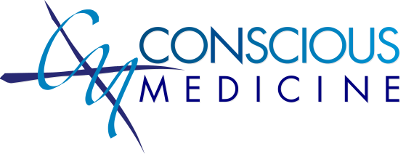
.
In one way or another, we all sense that our approach to our health is flawed. But we are not as conscious about this as we could be, from both the patient’s and the doctor’s perspectives.
From the patient’s perspective: We feel well for a time, and then we get sick. We might try to determine the cause of our sickness, either on our own or through our doctor. Hopefully through our efforts we become well again.
In some cases, however, our acute sickness is the signal of a more chronic problem. Illnesses such as heart disease, diabetes, stroke, cancer, and mental disorders do not develop overnight, but rather fester silently in ourselves before they manifest in the open as symptoms.
Research shows that these illnesses are heavily influenced by our lifestyles. With regard to our long-term health, our habits of eating, drinking, smoking, sleeping, exercising, and stressing matter. But we tend to seek quick fixes through ever-expanding medications or procedures, as we haphazardly lurch from one health crisis to another.
This is an unconscious approach to our well-being.
From the doctor’s perspective: We see a patient with a health problem and try to make a diagnosis with the tools of modern medicine. These tools have become technologically advanced, allowing us to become very good at addressing acute disease from a biologic perspective. We save people from death from heart attacks, treat life-threatening infections with powerful antibiotics, surgically remove malignant tumors, and prescribe life-altering medications for severe psychiatric diseases.
But our practice of mainly acute-care medicine is failing us in many other ways. We incentivize high-volume, procedurally-dominated medical care. We do not incentivize prevention of disease and promotion of wellness through the improvement of unhealthy lifestyles. We have reduced all illness into biology. And we neglect social, psychological, and spiritual factors in influencing health.
This is an unconscious approach to our well-being.

.
On multiple fronts, the cost of a fragmented approach to caring for our health is high.
As individuals, we are physically worn out when we battle chronic illnesses. We suffer mentally, emotionally, and spiritually as well. We get hit repeatedly in our pocketbooks as we utilize our expensive healthcare system. And we cut short the lives we are meant to live.
As a society, our culture fails to thrive when illness becomes its never-ending story. The social and financial gaps between the healthy and unwell increase. Our collective debt skyrockets as healthcare expenditures become an overwhelming part of our economy. And we use up immense natural resources just to stay in place on this healthcare treadmill.
We can no longer afford to reshuffle deck chairs on this sinking Titanic of our healthcare system. The unconscious persistence in partial truths about how to care for our health is unsustainable and will bankrupt us.

.
Conscious Medicine® is our endeavor to consciously evolve a better path to the future of health. We aim for no less than the radical transformation of how we care for our sick and cultivate well-being. In practicing Conscious Medicine, we will honor some basic, interwoven tenets:
A comprehensive, contextual approach to health: To diminish disease and promote wellness, we will take multiple perspectives into account. We will include the best of what modern medicine offers us, along with alternative, holistic, and energy medicine practices. We see these practices as complementary and synergistic to each other, not antagonistic. But what is key is to apply, with authenticity and rigor, the practices best to a given context — not employ the grab-bag approach that befalls many superficial systems of integrative medicine.
An emphasis on both primary and secondary prevention: A comprehensive approach to health includes both primary and secondary prevention. Secondary prevention aims to screen for a disease early in its onset, so as to treat it before it worsens. Primary prevention aims to prevent the disease from developing in the first place. Both are important, but secondary prevention has taken center stage in our recent discussions on healthcare reform. Secondary prevention alone will not adequately bend the healthcare cost curve down. We will alter this unsustainable trajectory by actually helping each other live in good health, through addressing the root causes of disease and poor health.
Transparency of costs: Secondary prevention via a given healthcare system inherently costs more than primary prevention. Screening for diseases through tests inevitably leads to more tests. These tests can be falsely positive, which adds cost to the system. There is no free healthcare. Our modern healthcare system has disconnected us from its true costs. A fair exchange of value can occur only when these costs are transparent. We will make transparent the costs of our healthcare system among all its stakeholders.
Empowerment and accountability of all stakeholders: All stakeholders of healthcare are empowered when we share the costs and enjoy the benefits transparently. There are multiple stakeholders in this system — doctors and other healthcare providers, patients, families, nurses, hospitals and clinics, researchers, insurance companies, businesses, lawyers and lawmakers, and taxpayers. We will make healthcare more conscious by holding us all responsible for our health.
Validation of practices: One powerful way to hold each other accountable for our health is through an evidence-based approach. Evidence-based medicine has become the buzz-phrase in the practice of modern medicine. In fact, when practiced authentically, it is the strength of modern medicine. We will both incorporate and go beyond pre-rational and rational approaches and take healthcare to a trans-rational plane. A trans-rational perspective is uninterested in dogmatic attachments to theories, whether applied to conventional or unconventional medicine. Instead, it insists on empirical validation of all employed practices, insofar as we recognize that there are multiple ways of empirically validating such practices.

.
Our healthcare system is flawed. On this we all agree. We have arrived at a pivotal time to restore and renew the path to good health in a way that is comprehensive, preventive, transparent, empowering, and validated. Only in this way can our approach to health be sustainable — for ourselves, our bodies, our culture, and our planet.
No single individual or system will provide all the answers on how to fix healthcare, including our own. But we now have the unprecedented opportunity, in our increasingly interconnected world, to wake up together and co-create Conscious Medicine.
We invite and welcome all who are authentically committed to paving this path with us.
[activecampaign form=7]
